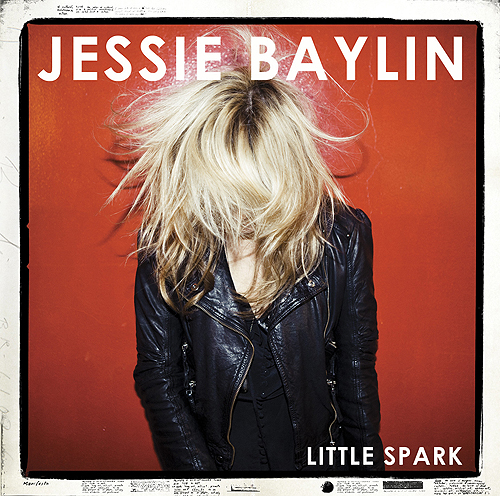Videos by American Songwriter
Jessie Baylin
Little Spark
(Blonde Rat/Thirty Tigers)
[Rating: 3.5 stars]
Jessie Baylin is a wanderer. A Jersey girl by birth, she attended music school in New York City and later moved to Los Angeles, where she launched her songwriting career as an indie-folk regular at the Hotel Cafe. Now settled in Nashville, she funnels her wanderlust into the gorgeous, pastoral songs that fill her third album. Little Spark may be an alt-country record on the surface, but Baylin dives deep into the genre’s roots, mining a mix of western blues, Laurel Canyon folk, and 1970s singer-songwriter pop. String arrangements rub shoulders with pedal steel guitars, and girl group harmonies – most of them supplied by The Watson Twins, in their best cameo performance since Jenny Lewis’ Rabbit Fur Coat – echo alongside Baylin’s country-cabaret croon. “Yuma,” a western ballad set to a bossa nova beat, even sounds a little Brazilian. For all its globetrotting variety, Little Spark is the most cohesive thing Baylin’s ever done. The songs fit together like puzzle pieces, their unique edges linking up to form some sort of nostalgic, sepia-toned image. The overall picture is one of an artist successfully rebooting herself, and Baylin – who sings this material with a mix of Southern grace and casual, almost boozy melancholia, landing somewhere between Memphis-era Dusty Springfield and Kathleen Edwards in the process – sounds like she’s finally found her home.
Of course, she gets a little help from her friends along the way. Producer Kevin Augunas bathes everything in warm analog gloss, and string arranger Jimmie Haskell – famous for his work on Simon & Garfunkel’s “Bridge Over Troubled Water” and Bobbie Genrtry’s “Ode to Billie Joe” – evokes different eras like a time traveler, lacing “Hurry Hurry” with mid-century Brill Building violins before dialing up the 1970s for the album’s biggest Carole King soundalike, “Dancer.” Little Spark grooves as much as it swoons, thanks to an all-star roster that includes drummer Jim Keltner and session guitarist Waddy Watchel, but the biggest contributor is utility man Richard Swift. He’s the musical equivalent of an ideas man, tasked with the responsibility of giving each song its own retro-chic identity, and he frames Baylin’s music in all the right contexts. “Holiday” is sprinkled with AM-gold dust, and “The Winds” is stripped down to an atmospheric mix of piano, vocals and drum loops, drawing similarities to the ghostly country-rock that appeared on another musical reboot: Emmylou Harris’ Wrecking Ball. Being married to someone like Nathan Followill, the barrel-biceped drummer from Kings of Leon, surely has its advantages. One imagines a world of limitless studio time and countless would-be collaborators, all of them eager to please. But Baylin leaves her husband’s Rolodex alone, steering clear of Kings of Leon’s familiar entourage – including producer Ethan Johns and co-writer Angelo Petraglia – and using her songs, not her lineage, to attract an equally strong dream team. If Followill has any presence on this album, it’s a peripheral one. He’s the subject of her love songs, and probably the responsible party for the leisurely Southern tempos that Baylin now favors, living proof that the former Yankee has adapted to Tennessean life quite nicely.
But forget the relaxed pace. Little Spark is a firecracker, more incendiary than its name suggests and far better than most albums by Baylin’s contemporaries. She manages to accomplish in 40 minutes what other artists fail to do throughout their entire careers: pay tribute to a half-century of country, folk, and pop songwriters without illuminating the gap that looms between their songs and hers. Truth be told, there is no such gap, which makes Little Spark something of a modern-day classic.














Leave a Reply
Only members can comment. Become a member. Already a member? Log in.